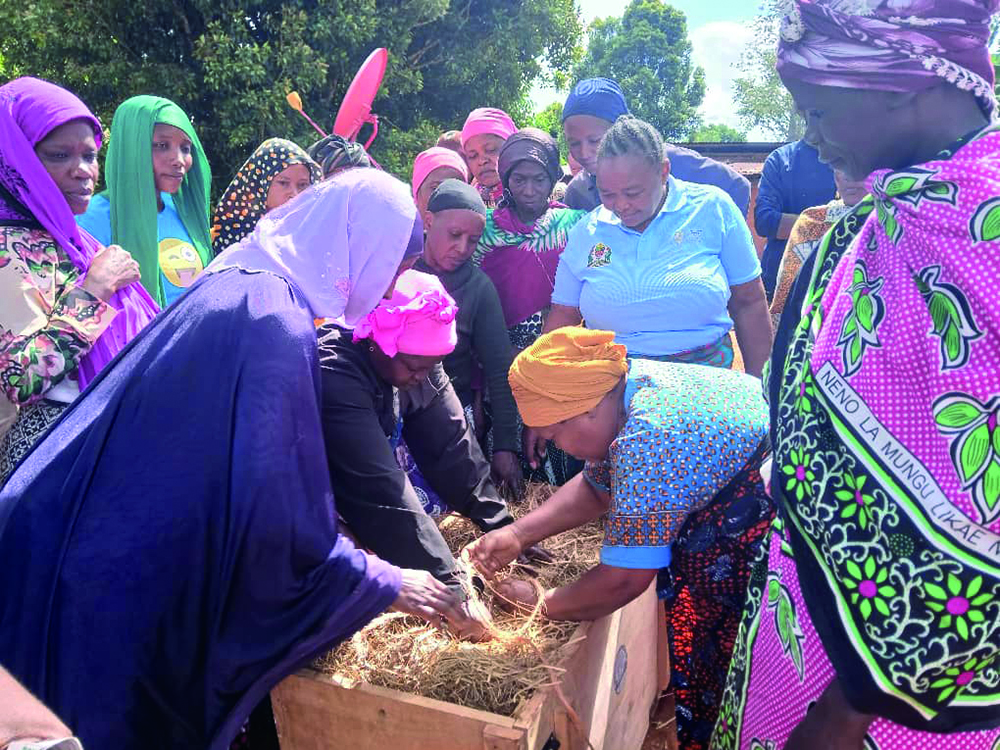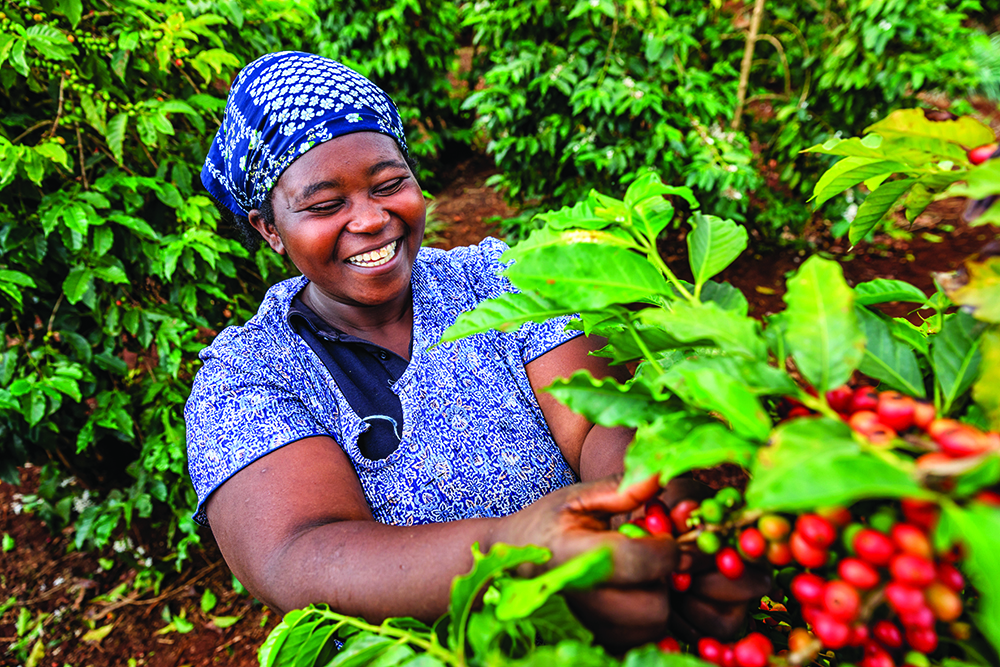Women leading the chain
A Teagasc work placement explored gender challenges and solutions across two projects: COREnet and Dairy Kenya-Ireland. This highlights how women are driving innovation in short food supply chains.

Women farmers in Tanzania attending a workshop on forage baling techniques. Photo credit: Teagasc.
The project ‘Connecting Advisors toward a European Network for consumer-producer chains’ (COREnet) is an advisory network funded by Horizon Europe. It aims to develop and coordinate support for farmers and producers who want to sell directly to consumers. The Dairy Kenya-Ireland project works to improve dairy farming practices, boost productivity, and build climate resilience, particularly for smallholder farmers and cooperatives in Kenya.
Both projects focus on strengthening short food supply chains (SFSCs), market systems that reduce the number of intermediaries between producers and consumers, often through direct sales such as farmers’ markets, co-ops, or local shops. SFSCs promote transparency, improve returns for producers, and support local economies.
Women are central to the success of both projects. Across the EU, women are strongly represented in SFSCs and are often early adopters of sustainable technologies. In Kenya, women play key roles on farms even when they don’t formally own land or assets.
Improving participation
This article shares insights from a Teagasc work placement that examined how both projects are addressing shared gender-related challenges, and the practical solutions being applied. It highlights how gender-responsive advisory approaches can increase women’s participation in agriculture and support more inclusive and sustainable food systems.
“Gender-responsive approaches in short food supply chains are essential to improving women’s participation,” explains Isaura Mauelele, MA student at the University of Galway. According to COREnet, SFSCs involve a limited number of intermediaries between farmers and markets or consumers.
The research involved analysing articles and reports that outlined gender frameworks used to evaluate agricultural programmes. In addition, qualitative interviews were conducted with team members from the Dairy Kenya-Ireland and COREnet projects to explore aspects of their work related to women in agriculture. Common challenges and shared solutions were identified by assessing areas of cross-cutting relevance between the two projects.
Socio-economic exclusion
Smallholder female farmers face similar challenges in both regions, particularly in accessing and controlling key resources such as finances, equipment, land, and markets. These issues are rooted in gender norms around land and property ownership, contributing to broader forms of socio-economic exclusion.
For example, women often face greater difficulty accessing financial resources, which limits both their productivity and economic empowerment. In Kenya, team members observed that while men typically own land, livestock, and businesses, it is often the women working on these farms who are more likely to adopt the climate-resilient technologies promoted by the project. These technologies ease farm work, such as reducing the time spent travelling for water, making them especially valuable to women.
“In the European Union, and to a lesser extent in the African Union, some women are both farmers and landowners, though these are mainly single women and widows,” Isaura notes. “Married women in both contexts tend to have less control over farm assets and income.”

Young African woman collecting coffee berries from a coffee plant, Kenya, Africa. Photo credit: hadynyah/istockphoto.com.
Addressing imbalance
To help address this imbalance, the Dairy Kenya-Ireland project includes a capacity-building programme to increase women’s participation in farm decision-making, particularly in recognition of their propensity to be ready adopters of climate-resilient technologies.
The Food and Agriculture Organization of the United Nations highlights that access to financial services enables rural women to purchase inputs, hire labour, and invest in equipment for both agricultural and off-farm activities. Women farmers in the Dairy Kenya-Ireland project participate in a Savings and Loan programme, through which they access loans and machinery to support sustainable farming practices, with guidance from an extension team.
Similarly, the COREnet project’s Golden Cases identify examples of advisory good practice in supporting short food chains, many of which feature female producers. Irish examples such as Kylemore Farmhouse Cheese and Béal Organic Cheese offer useful inspiration for how Dairy Kenya-Ireland’s advisory supports might be adapted in the future to help Kenyan women make use of growing milk supplies through value-added production like cheese making.
Supporting empowerment
The advisory good practices identified in COREnet’s Golden Cases are transferable to the Dairy Kenya-Ireland project. They offer a model for supporting the development of milk and cheese short food chains. For smallholder female farmers, this presents a valuable opportunity to turn surplus milk into higher value-added products such as cheese.
“This approach could boost farm-level profitability, contribute to household income, and encourage the development of a feminised diversification activity, ultimately supporting women’s empowered participation in agriculture,” highlights Isaura. “Additional gender-responsive actions could include providing targeted training for smallholder women farmers to become agricultural entrepreneurs.”
As advisory services continue to evolve, particularly in line with European Commission and FAO policy goals to strengthen connections between farmers and consumers, it is essential that these services reach and engage smallholder women farmers. COREnet offers examples of how to do this effectively, such as organising on-farm demonstration events led by female entrepreneurs, along with associated training and workshops.
These approaches not only showcase female-led innovation but also incorporate the voices and local knowledge of smallholder farmers. This is vital for the success of extension services that aim to integrate climate-smart technologies and techniques into the development of short food chains.
Funding
The COREnet project is funded by Horizon Europe, Grant agreement ID: 101060905. The Dairy Kenya-Ireland project is led by Teagasc in partnership with the Kenya Agriculture and Livestock Research Organisation (KALRO).
Acknowledgements
Thank you to the teams of the COREnet and Dairy Kenya-Ireland projects for facilitating this research.
Contributors
Isaura Mauelele, MA student, Gender, Globalisation and Rights, Global Women’s Studies Programme University of Galway.
Áine Macken-Walsh, Research Officer, Department of Agri-Food Business and Spatial Analysis, Teagasc, Athenry.
aine.mackenwalsh@teagasc.ie
Paul Maher, Head of International Relations and Corporate Strategy, Teagasc Oak Park.
